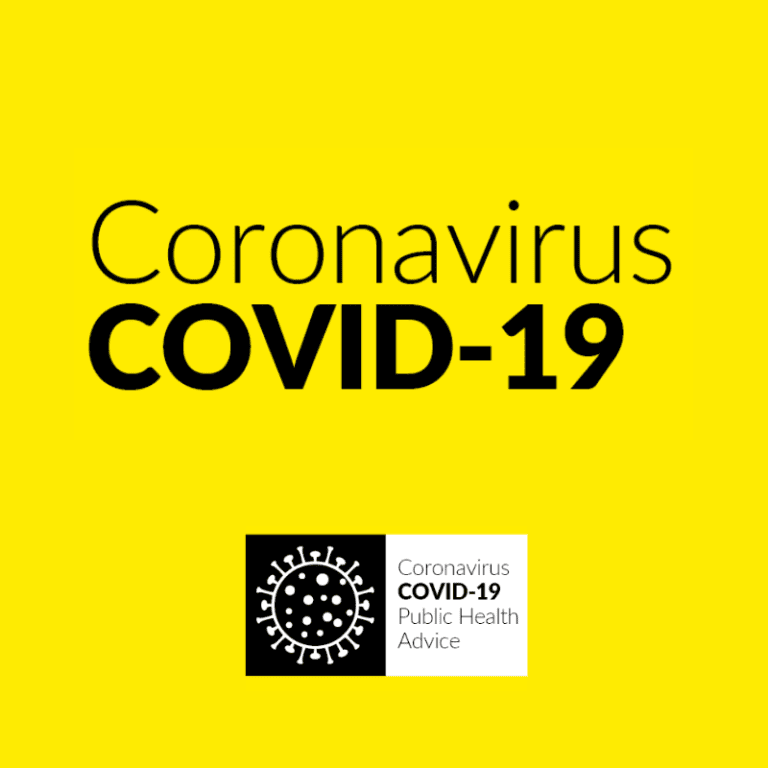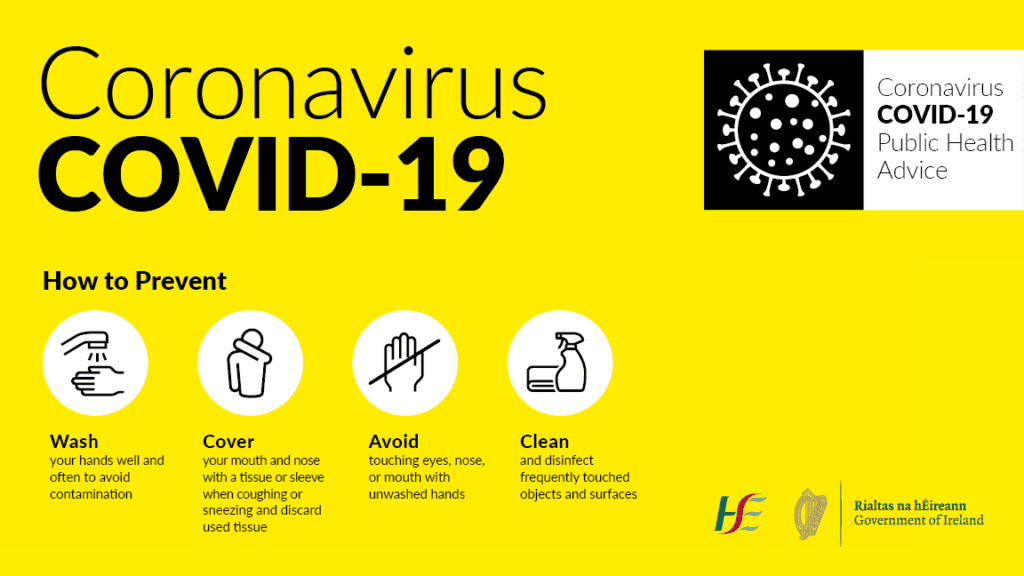[vc_row][vc_column width=”3/4″][vc_column_text]COVID-19 is a new illness that can affect your lungs and airways. It’s caused by a virus called coronavirus. There is currently no vaccine to prevent COVID-19 and the best way to prevent illness is to avoid being exposed to this virus.
For heart and stroke patients, prevention is key. While it is normal to feel anxious about how this condition might affect you, you are at no greater risk of developing COVID-19 than anyone else. However if you do contract the virus you have a higher chance of developing complications. Groups that are at risk of more serious illness if they catch coronavirus are:
- Those aged 60 years of age and over
- People with a long term medical condition- for example heart disease, stroke, lung disease, diabetes, cancer or high blood pressure.
- People who have a compromised immune system (immunosuppressed)
Therefore you need to be extra vigilant by following the advice of the HSE, being aware of the symptoms and by taking the recommended precautionary measures. Everyone has a role to play in reducing the spread of this virus and if we all take collective responsibility we will minimise the risk for everyone.
What are the symptoms of COVID 19?
The main symptoms to watch out for are:
- a cough
- a high temperature
- shortness of breath
- Breathing difficulties
Other symptoms are fatigue, headaches, sore throat, aches and pains.
But these symptoms do not necessarily mean you have the illness. The symptoms are similar to other illnesses that are much more common, such as cold and flu.
If you are experiencing any of these symptoms and are concerned you should contact your GP for further advice.
How to avoid catching or spreading coronavirus
Coronavirus is spread by droplet infection – coughing and sneezing or by close contact with someone who has the virus. As it’s a new illness, we do not know how easily the virus spreads from person to person. Spread is most likely from those who have symptoms.
Limit close contact
As Ireland has local transmission of the virus, the country has entered the ‘delay phase’ of managing COVID-19. Social distancing and avoiding close contact is strongly advised to reduce the spread of coronavirus. Key recommendations are:
- Avoid hand shaking and close contact with people- keep a distance of 2 meters (6.5 feet) between you and others.
- Work from home if and where possible.
- Avoid crowded places, especially indoors.
- Limit your children’s interactions with other children, play dates should be avoided and contact with grandparents should be kept to a minimum.
- Tell visitors not to visit if they have are feeling unwell of have any symptoms of coronavirus
- Ask visitors to wash their hands
- Make a joint plan with family friends and neighbours on what to do if you become ill.
- Meet people in a well -ventilated room or outdoors.
Travel
Avoid all non-essential travel. You will need to self quarantine for 14 days if returning from Italy, Spain, China, South Korea or Iran.
There are several other countries with a spread of Corona virus but currently there are no travel restrictions in place. Check with the department of foreign affairs for the latest advice before travelling abroad. https://www.dfa.ie/travel/travel-advice/coronavirus/
Self-quarantine and self-isolation
To help stop the spread of coronavirus (COVID-19) you may need to either self-quarantine or self-isolate.
Self-quarantine means avoiding contact with other people and social situations as much as possible. You will need to do this if you are a close contact of a confirmed case of coronavirus and you are still well.
Self-isolation means staying indoors and completely avoiding contact with other people. You will need to do this if you have symptoms of coronavirus.
Other Do’s and Don’t’s include:
Do:
- wash your hands with soap and water often – do this for at least 20 seconds
- always wash your hands when you get home or into work
- use hand sanitiser gel if soap and water are not available
- cover your mouth and nose with a tissue or your sleeve (not your hands) when you cough or sneeze
- put used tissues in the bin straight away and wash your hands afterwards
- try to avoid close contact with people who are unwell
Don’t:
- Do not touch your eyes, nose or mouth if your hands are not clean
- Do not share objects that touch your mouth, for example bottles and cups.
- Do not shake hands.
- Don’t have more than 2 visitors at a time to your home.
Is there any specific advice for individuals living with heart disease or stroke?
Currently there is no specific advice for people with heart or circulatory conditions. However as you are at higher risk of a more serious illness if you contract coronavirus we would strongly urge you to take extra care in ensuring you follow all of the above precautions.
With the emphasis being on minimising contact outside the home, it is still important to maintain your healthy lifestyle habits and not to disregard your usual exercise routine, which can still be done outdoors. Please see our website for lots of helpful health tips and advice to keep you on track.
Refill your medication prescription as normal and have over the counter medications such as paracetamol and a thermometer in your home. There is no disruption to the supply of medicines and therefore there is no need to order more medicines than you need. Ask a family member to collect any medicines you need. If you do feel unwell, it’s still really important to carry on taking any medication you’ve been prescribed and speak to your doctor if you have any concerns.
Look after your emotional health and well-being. Any unexpected changes to our daily lives can be a source of stress and COVID -19 is no different. It is important to obtain information from reputable sources and focus on the facts rather than opinions on social media.
Treatment for coronavirus
There is currently no specific treatment or vaccine for COVID 19. The treatment approach involves alleviating symptoms and reducing the risk of others becoming infected. This includes:
- Getting plenty of rest
- Staying hydrated by drinking plenty of water
- Taking paracetamol to help with symptoms such as a high temperature
- Staying in isolation away from other people until you have recovered.
For further information you can visit the following websites:
- https://www2.hse.ie/conditions/coronavirus/coronavirus.html#Symptoms
- https://www.gov.ie/en/campaigns/c36c85-covid-19-coronavirus/?referrer=/en/news/e58285-the-novel-coronavirus-2019-ncov/
[/vc_column_text][/vc_column][vc_column width=”1/4″][vc_single_image image=”8761″ img_size=”large” onclick=”link_image”][vc_single_image image=”8757″ img_size=”large” onclick=”link_image”][vc_single_image image=”8758″ img_size=”large” onclick=”link_image”][/vc_column][/vc_row]

